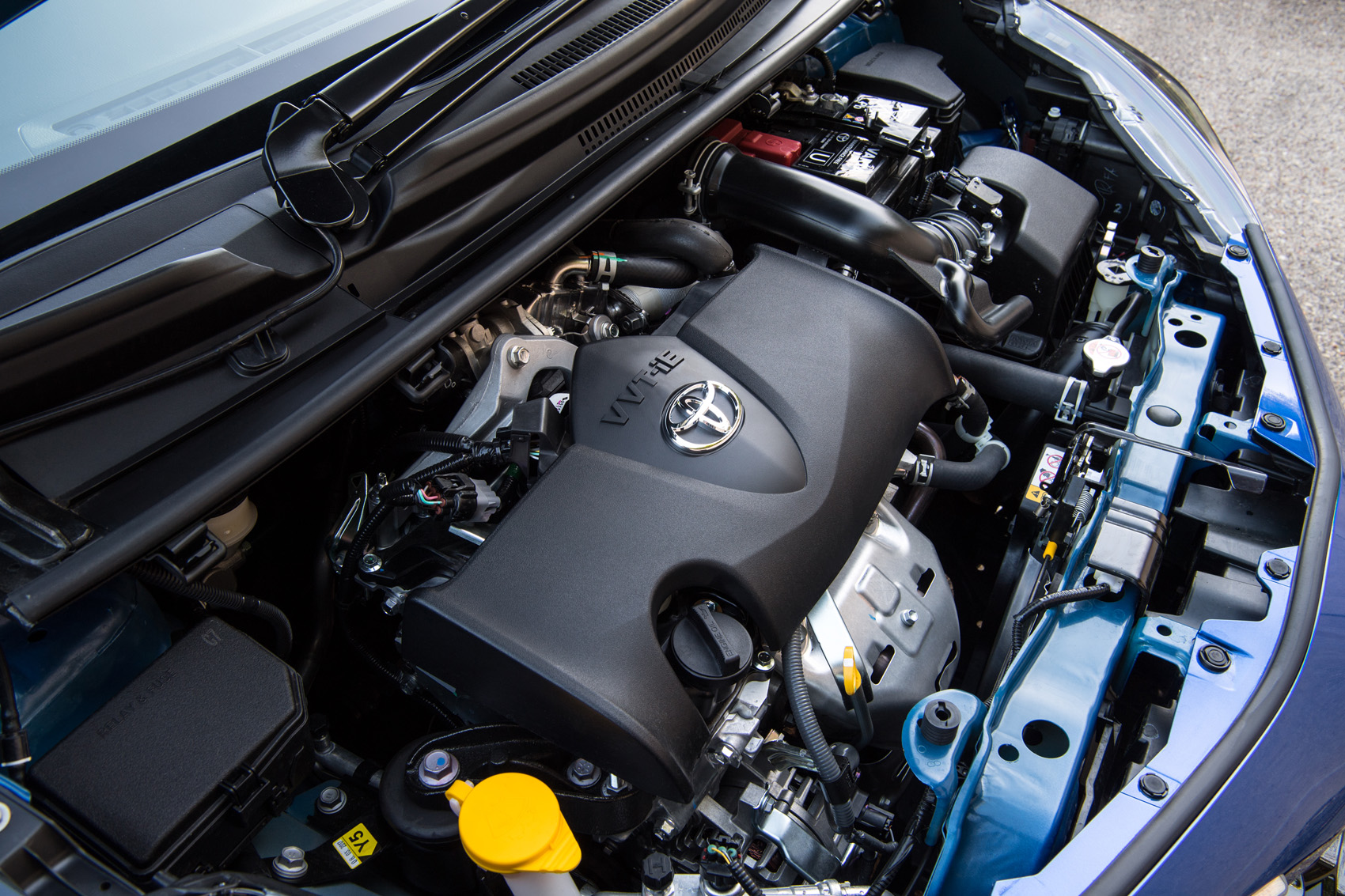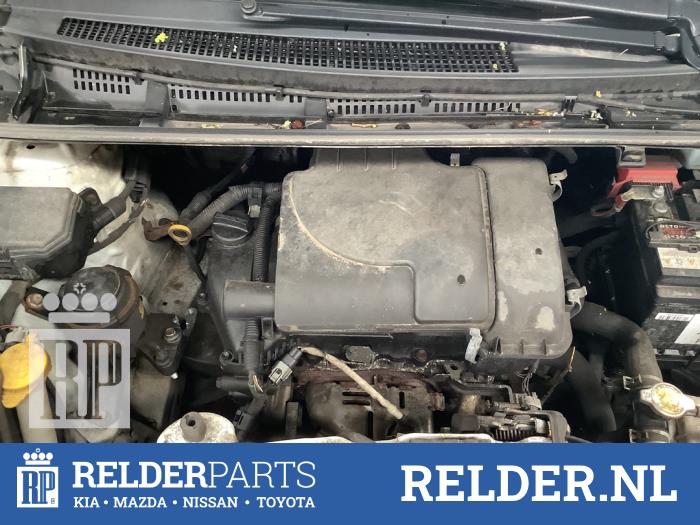Is the Toyota Yaris 1.3 VVT-i Engine as Reliable as the Hype Suggests? A Deep Dive
The Toyota Yaris. A name synonymous with fuel efficiency, practicality, and, perhaps most importantly, unwavering reliability. But does the venerable 1.3-liter VVT-i engine, often found under the hood of earlier Yaris models, truly live up to its reputation? This article delves into the heart of the matter, analyzing the engine’s design, common issues, and overall dependability to determine if the praise is warranted. We’ll examine the facts, providing you with the information you need to make an informed decision.
Understanding the Toyota 1.3 VVT-i Engine
The 1.3-liter VVT-i (Variable Valve Timing – intelligent) engine was a staple in the second-generation (2005-2011) and third-generation (2011-2020) Toyota Yaris models. This inline-four gasoline engine, known for its compact size and relatively low emissions, aimed to balance performance with fuel economy. It was a core component of Toyota’s strategy to offer a reliable and efficient small car.
Key Features Contributing to Reliability
Several design and engineering choices contributed to the 1.3 VVT-i engine’s generally positive reliability record:
- Simple Design: The engine’s relatively straightforward design, with fewer complex components than some of its competitors, reduces the potential for mechanical failures.
- Robust Construction: Toyota is known for using high-quality materials and build processes, contributing to the engine’s longevity.
- VVT-i Technology: While adding a layer of complexity, VVT-i helps optimize valve timing for improved fuel efficiency and performance, without significantly compromising reliability when properly maintained.
- Proven Technology: The engine’s development benefitted from Toyota’s extensive experience in engine design and manufacturing, leading to a well-refined and tested product.
Common Issues and Potential Weaknesses
While the 1.3 VVT-i engine is generally reliable, it’s not entirely immune to problems. Here are some common issues to be aware of:
- Oil Consumption: Some engines, especially as they age and accumulate higher mileage, may exhibit increased oil consumption. Regular oil level checks are crucial.
- Spark Plug Issues: Spark plugs can wear out over time, leading to misfires and reduced performance. Regular replacement is recommended.
- Water Pump Failure: The water pump, a common wear item in any engine, can fail. This can lead to overheating and potential engine damage if not addressed promptly.
- Catalytic Converter Issues: Though less common, the catalytic converter can be susceptible to failure, often related to oil consumption issues or other engine problems.
- Timing Chain: Unlike some engines with timing belts that require periodic replacement, the 1.3 VVT-i uses a timing chain, which is generally more durable and less prone to failure. However, the chain can stretch over time, potentially affecting engine performance.
Maintenance: The Key to Longevity
Proper maintenance is paramount to ensuring the 1.3 VVT-i engine’s long-term reliability. Adhering to the manufacturer’s recommended service schedule is critical:
- Regular Oil Changes: Use the correct type and grade of oil and change it at the recommended intervals, typically every 10,000 miles or annually, whichever comes first.
- Spark Plug Replacement: Replace spark plugs at the intervals specified in the owner’s manual.
- Coolant Flush: Flush and replace the engine coolant at the recommended intervals.
- Air Filter Replacement: Replace the air filter regularly to prevent debris from entering the engine.
- Professional Inspections: Have a qualified mechanic inspect the engine periodically, particularly if you notice any unusual noises, leaks, or performance issues.
The Verdict: Reliability Assessment
The Toyota Yaris 1.3 VVT-i engine generally lives up to its reputation for reliability. It’s a robust and well-engineered engine that, with proper maintenance, can provide years of dependable service. While some issues can arise, they are often manageable and predictable. The engine’s simplicity and proven design contribute significantly to its longevity. However, remember that factors like driving habits, climate, and previous owners’ maintenance practices can also affect the engine’s performance and lifespan.
Frequently Asked Questions (FAQs)
1. How many miles can a Toyota Yaris 1.3 VVT-i engine last?
With proper maintenance, the 1.3 VVT-i engine can easily last for over 200,000 miles, and many examples reach 300,000 miles or more.
2. What type of oil should I use in my Toyota Yaris 1.3 VVT-i?
Consult your owner’s manual for the recommended oil type and viscosity. Generally, a high-quality, fully synthetic oil is recommended to provide optimal protection.
3. What are the signs of a failing water pump?
Common signs of a failing water pump include coolant leaks, overheating, and unusual noises from the front of the engine.
4. Is the 1.3 VVT-i engine more reliable than the 1.0-liter or 1.5-liter options offered in the Yaris?
The 1.3 VVT-i is often considered a sweet spot, balancing fuel economy with a bit more power than the 1.0-liter. Reliability is generally comparable across the engine options, but the 1.3 often benefits from less stress due to its larger displacement.
5. Should I be concerned about buying a used Yaris with this engine?
No, you shouldn’t necessarily be concerned. However, it’s crucial to have the car inspected by a trusted mechanic and review its service history to ensure it has been properly maintained.
Conclusion
The Toyota Yaris 1.3 VVT-i engine is a testament to Toyota’s commitment to producing reliable and efficient vehicles. While no engine is perfect, this one has consistently demonstrated its durability and resilience. By understanding its strengths, potential weaknesses, and the importance of proper maintenance, you can confidently assess whether this engine is the right choice for your needs. The reputation for reliability is well-earned, making the Yaris with the 1.3 VVT-i a strong contender in the used car market.




